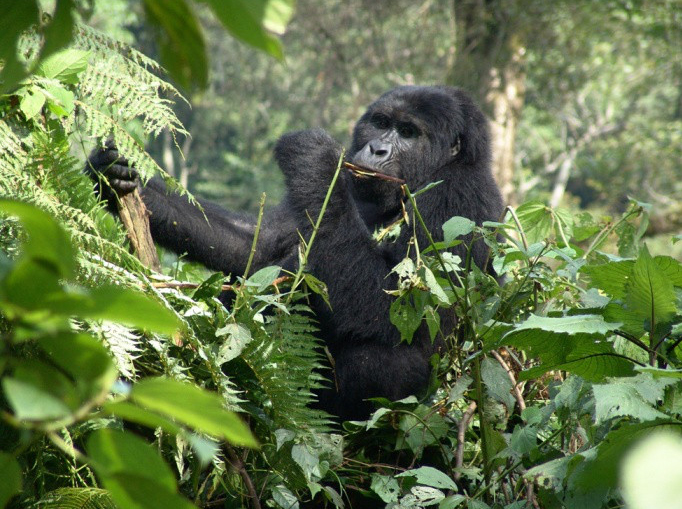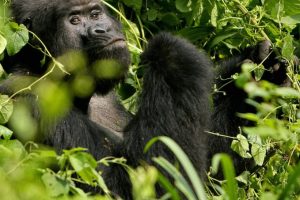We consider Eco Tours in Rwanda to be a trip that causes minimal impact to the environment and local people. The site is usually culturally and biologically diverse and attracts tourists who have a common interest in nature, wildlife and culture.
A fundamental element of an Eco Tour is the education of environmental issues such as, the protection of natural resources or endangered species, usually relevant to the destination. This may be conducted through lectures, involvement in conservation projects or simply by learning from a knowledgeable tour guide.
Ever wondered what affect your African safari or holiday is having on the local environment you’re visiting? Take a moment to reflect: Africa has her share of amazing luxury lodges and incomparable wildlife experiences but the continent is the world’s poorest and her people and ecosystems beset by all manner of hardships and challenges.
Happily, there’s a new approach to African travel: Eco-holidays in Africa. Operators, lodges and wildlife authorities all over the continent are actively promoting responsible, sustainable, eco-friendly travel to Africa, working not only to conserve the natural environment but also to give back to local communities.
Indeed, communities across Africa have been considerably uplifted by such initiatives: employment is generated by training disadvantaged community members to become guides, support staff or chefs; life skills like computer literacy and HIV awareness are provided; and in many cases, tribal communities such as the Kenyan and Tanzanian Masaai are now genuinely involved in the management of their traditional lands that have been set aside for tourism.
Other responsible travel role players support wildlife and conservation initiatives by funding animal rehabilitation centers, promoting awareness about rare fauna and flora and encouraging sustainable environmental programmes. Look out for lodges that are eco-friendly and recycle their waste, grow organic vegetables and use solar power or try an African Eco-holiday that puts you at the heart of the community and its development projects.
It’s easy to get carried away by the magic of Africa but why not ensure your African holiday or safari has purpose and makes a meaningful contribution to the continent?
As an Eco – traveler it is your responsibility to prevent or minimize any negative impacts on the environment, local community and economy of the destination you are visiting. Our aim is to provide guidelines that will help you to remember the principles of ecotourism throughout your trip.
During your Stay
Be sensitive to the local culture by wearing clothing that is accepted. Be aware of people’s sensitivity to being photographed; always ask first. Observe local customs.
Remember that you are a visitor and therefore be aware that your cultural values may differ from those of the locals. This may include different concepts of time, personal space, communication etc. which are not wrong or inferior, just different.
Demonstrate responsible behaviour to other travelers who are less informed than you by acting as an example. Use local transportation, guides, inns, restaurants and markets to benefit the local economy.
Be sensitive to displays of wealth in front of people from developing countries. By displaying possessions such as cameras and jewellery, feelings of jealousy may be created which then generates barriers that inhibit genuine interactions between travelers and locals.
Ask your tour operator or guide what their established environmental guidelines are for limiting and improving tourist impact on the environment and local culture. General guidelines involve staying on trails, maintaining set distances away from wildlife, and not encouraging drivers to move too close to wildlife, even if it is tempting for getting a better picture.
Comply with international environmental conventions. Do not buy any animal products while travelling. Do not remove any objects, plants or animal products from nature. Not only can these affect fragile ecosystems, but is also illegal.
Conserve Resources. Be aware of resource shortages such as water and food as many tourist destinations are under increasing pressure.
Don’t allow your guide to hunt endangered or threatened species or harvest rare plants for your consumption.
Encourage practices to conserve the environment, including the use of renewable resources in a sustainable manner and the conservation of non-renewable resources.





